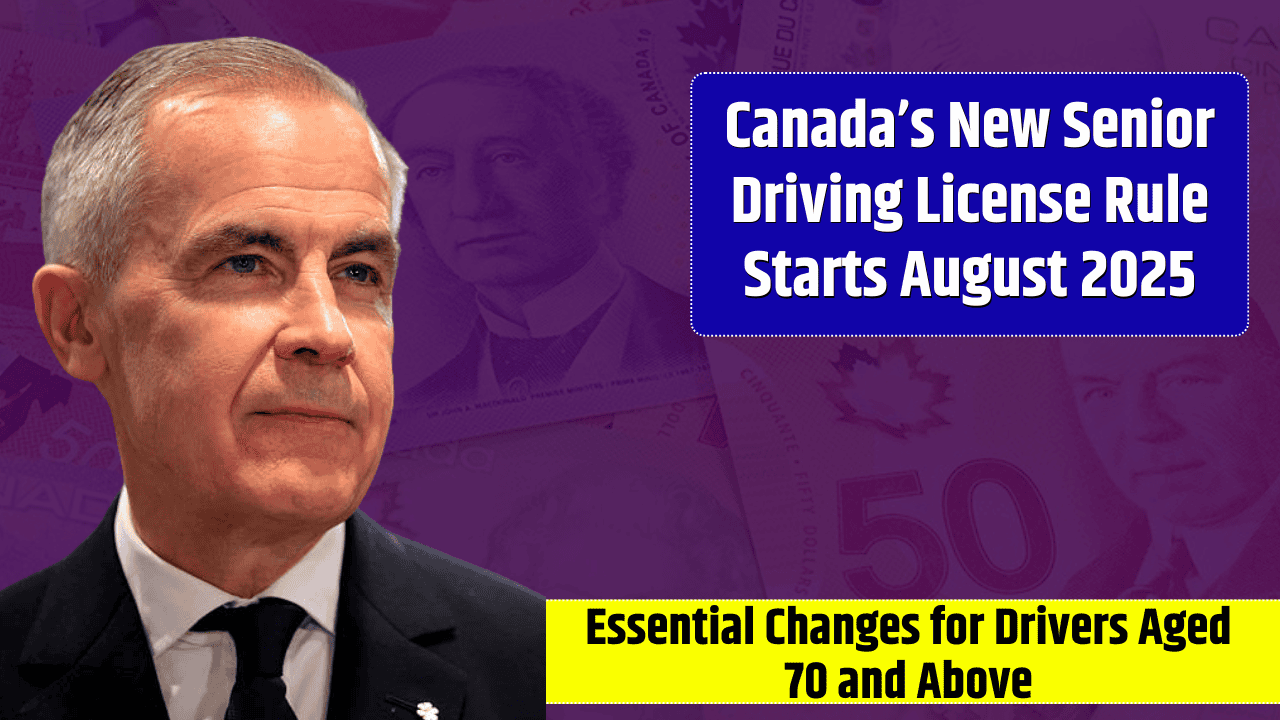If you’ve been scrolling through headlines lately, you might’ve seen a flurry of posts screaming about a “federal law” kicking seniors off the road come July 2025. Cue panic, Facebook debates, and the occasional “back in my day” comment thread. But take a breath—because the reality is a bit less dramatic and a lot more complicated. The law focuses on regular check-ins for older drivers, not blanket bans. Think of it as fine-tuning the engine.
The short version? Ottawa isn’t the one pulling the strings here. Driver licensing in Canada has always been a provincial and territorial responsibility. That said, every province and territory is now working toward a shared set of rules for drivers aged 70 and older, so things will be changing—but not in the heavy-handed, one-size-fits-all way some posts suggest.
Table of Contents
What’s Actually Changing
Starting in August 2025, provinces are expected to roll out updated senior driver requirements in phases. This isn’t a single, nationwide “flip the switch” moment. Instead, each province will tweak its own licensing rules while following a common framework aimed at making roads safer without unfairly sidelining older drivers.
| Core Update | What It Means | Who Decides? |
|---|---|---|
| Mandatory medical exams at 70+ | Doctors assess vision, reflexes, and cognitive health | Provinces set details |
| Possible follow-up road tests | Only if medical exam flags concerns | Provincial licensing authority |
| License restrictions | e.g., daylight-only driving instead of full suspension | Province-specific |
| Standardized evaluation guidelines | Provinces align criteria for seniors across Canada | Coordinated by provinces, not federal government |
These measures are designed to catch early signs of driving difficulty—think slower reaction times, reduced night vision, or mild cognitive decline—before they lead to accidents. Importantly, the rules aren’t about automatic age cut-offs.
Why Now?
Canada’s older driver population is growing fast. According to Statistics Canada, there are now more licensed drivers over 70 than ever before. Most are still perfectly safe behind the wheel, but the risk of crashes does increase with age-related changes. Provinces want a system that can flag risks early while respecting independence.
Will Seniors Automatically Lose Their Licenses?
No. A 72-year-old who passes a medical and vision exam can keep driving without issue. If a concern pops up—say, slower reaction times—a licensing office might order a road test or limit driving to daytime hours. The aim is to adjust driving privileges, not yank them without cause.
The Cost Question
Here’s the sticky part: medical exams and follow-up assessments aren’t always cheap. Some provinces cover them under public health plans, but others leave seniors paying out of pocket. The Canadian Medical Association has called for consistent funding to avoid punishing people on fixed incomes, but so far, coverage still varies.
Could This Be Age Discrimination?
That’s been part of the public debate. The Canadian Human Rights Act prohibits discrimination based on age—unless there’s a legitimate safety reason. Provinces argue these changes are about ability, not age, and are backed by safety data. Still, some legal experts believe future challenges are possible.
What Provinces Are Doing to Help
Recognizing that losing a license can be isolating, provinces are looking at expanded public transit passes for seniors, subsidized ride services, and volunteer driver programs for medical appointments or grocery runs. The idea is to keep people mobile even if their driving privileges change.
How Seniors Can Prepare
If you’re approaching 70, there are a few steps you can take to make renewal painless:
- Book regular eye exams—vision loss can be gradual and go unnoticed.
- Stay active—physical agility helps reaction times.
- Drive regularly—skills fade if you’re not behind the wheel often.
- Take a defensive driving refresher—many insurance companies even give discounts for it.
Being proactive now can save stress later—and maybe even extend your safe driving years.
Fact Check
Claim: A federal law will require all seniors over 70 to give up their licenses in July 2025.
Truth: False. No federal law exists. The changes are provincial, with each jurisdiction setting its own timeline. The “July 2025” date refers to when many provinces aim to start aligning with the shared guidelines, not a blanket ban or mandate.
FAQs
Who sets the rules for senior drivers in Canada?
Provinces and territories set the rules, not the federal government.
Will the requirements be the same everywhere?
Mostly, but some provinces may add extra training or testing.
Do seniors automatically lose their license at 70?
No, they only face extra assessments if there are concerns.
Are the exams covered by health insurance?
It depends on your province—coverage isn’t consistent yet.
Could the rules face legal challenges?
Possibly, but so far no major cases have succeeded.













